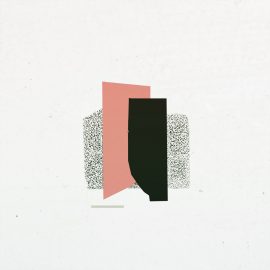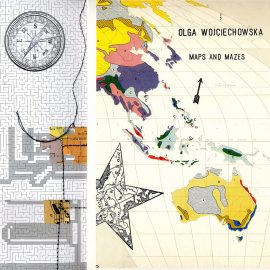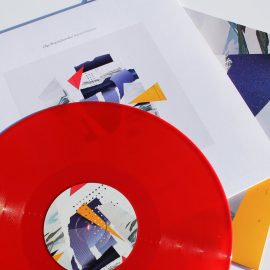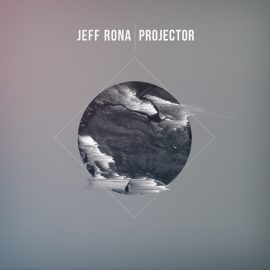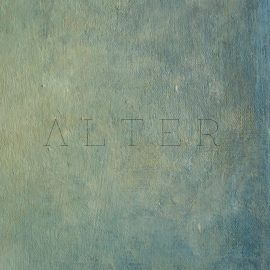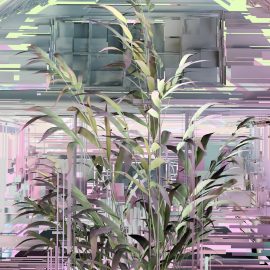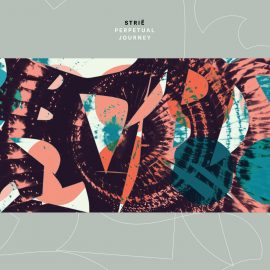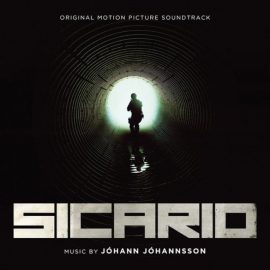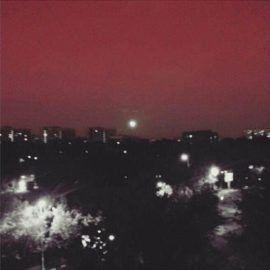Olga Wojciechowska
Infinite Distances
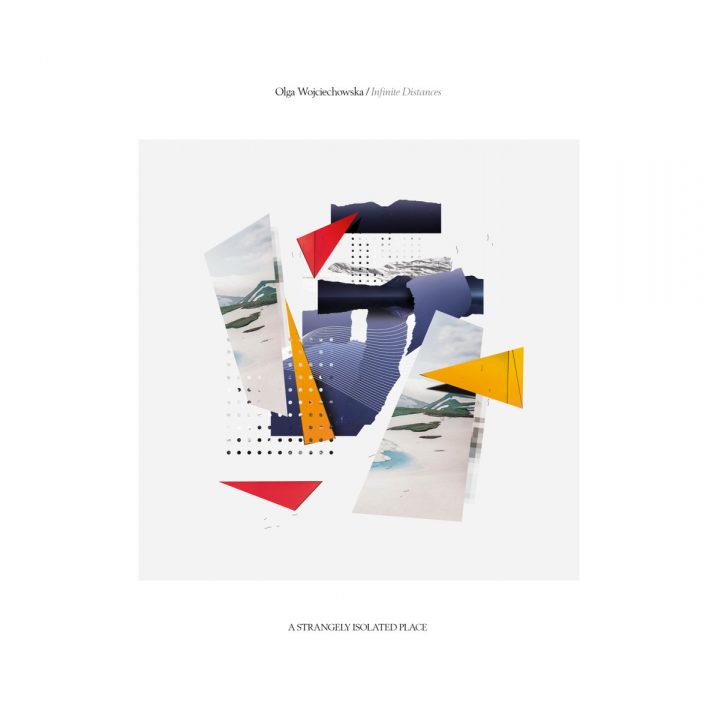
Olga Wojciechowska’s third album under her real name [as opposed to her previously lauded Strië moniker] appears on Ryan Griffin’s beautifully curated label, A Strangely Isolated Place. Opening up with pensive piano and strings (Olga is a multi-instrumentalist, after all), Wojciechowska sets a theatrical stage to let the Norwegian trombonist, Kristoffer Kompen, lightly breathe out the imprisoned images, which ebb and flow upon our wounded hearts. Dedicated to the memory of her grandmother, the music tilts a little towards the darker corners of Wojciechowska’s mind, traversing the various emotional alleys [and valleys] in the labyrinth of a grieving ache – “the highs, the lows, the polaroid-like happy memories, the ones that you never want to let go, and those that will never quite fade away.” The cinematic tendencies behind Wojciechowska’s compositions are present in all of her works [I can even hear Jóhann Jóhannsson’s influences on the title track], and I wouldn’t be surprised if within the next couple of years her name appeared on the score of a major Hollywood film [in fact, I would be surprised if it didn’t] – a confirmation of such assessment can be easily solidified by the London’s Royal Opera House, who has commissioned Olga to compose the music for Sidi Larbi Cherkaoui’s Medusa. Her latest, Infinite Distances can be absorbed in the background, or zoomed in closer for deeper introspection, especially for the more complex and abstract pieces like “Bursts of Static.” The echoes of the familiar melody throughout the seven tracks, as well as the artwork by Marco Vannini, tie it all nicely into a gorgeous little package, “maintaining the idea of fragmented and juxtaposing memories together in one place.” Head nod to Rafael Anton Irisarri who lovingly mastered the album in his Black Knoll Studio in New York. A modern classical meets electronic music marvel, deserving its selection on Headphone Commute’s best of the year lists, time and time again…
Pepo Galán
For Victoria
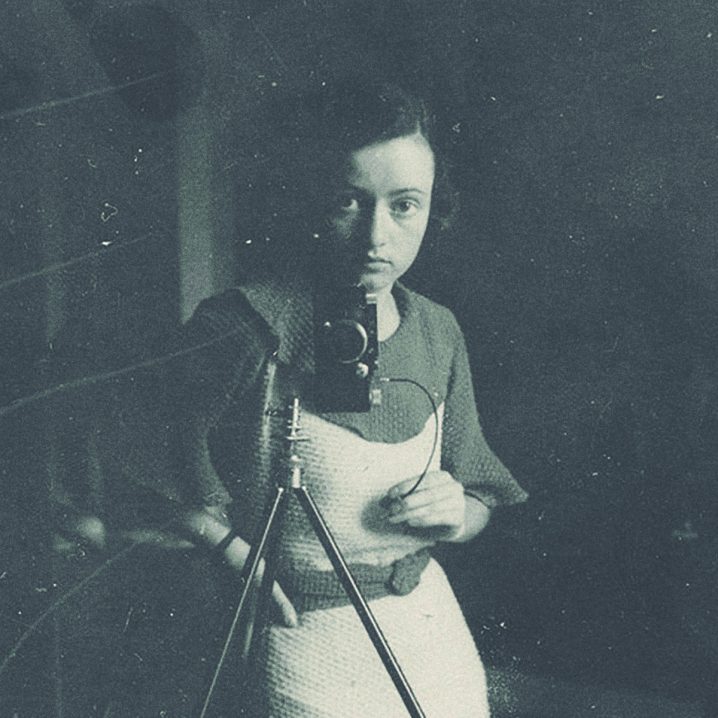
Digging through all the music I’ve loved, but did not have the chance to tell you about [hence the purpose of this column], I come upon an album by Spanish composer, Pepo Galán, which grabbed a spot on my Best of 2019 list for Music For The Frosty Night When I Miss Your Warm Light. I still listen to the beautiful track, “Autumn Youth,” with Sita Ostheimer’s gorgeous vocals, elements of which I now hear in other pieces appearing on this 6-track release. Among the many mesmerizing synth-driven pieces is a collaboration with Rafael Anton Irisarri, titled “February”, which slowly rises from the depths of the ocean and covers your cochlea with a blanket of sound. This is a highly textural and absorbing record, one that continues to astound and delight, even as I write these words upon its numerous playthroughs. This time, however, the echoes of Ostheimer’s melody are drifting in the back of my consciousness and melt with the droned-out resonance of Raf’s guitar. “Pepo Galán’s ‘For Victoria’ is an X-ray in musical form – black notes are imprinted upon a white stave in the same way that white bones are pressed against a black background – checking out things on a deeper level, highlighting and revealing what was once invisible. On this record, the unseen turns visible, although it isn’t in an entirely obvious way.” Leave it to Fluid Audio to put together a beautiful hand-made package assembled with love, held in a first edition signed copy of “Handbook of Radiography” with x-ray slides, films, radiography prints, and other vintage paraphernalia [digital and olfactory elements included]. While you’re stuffing your shopping cart, be sure to check out Galán’s Strange Parenthesis, which appeared on Archives in 2018, as well as his 7″, How Not To Disappear (Completely) out on the German Lontano Series imprint.
Robin Saville
Build A Diorama
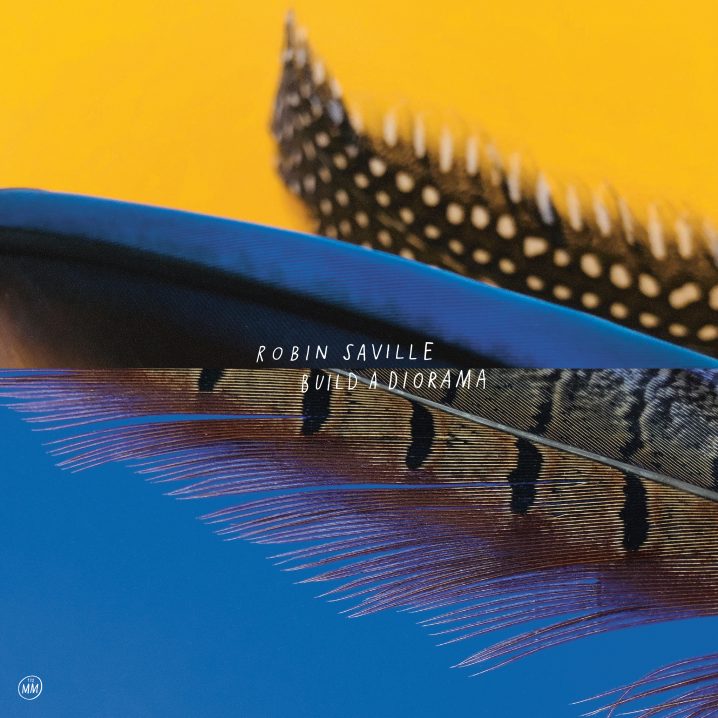
If you’re familiar with Integrated Services Analogue Network, also known as ISAN from the 90s, then you may recognize Robin Saville as one of the members of that duo (along with Antony Ryan). The group recently had a full-length release on Berlin-based Morr Music, titled Lamenting Machine, but it seems that on his own, Saville, is also “branching out” for an ambient offering, first time for Morr. This is a light, organic, feel-good album, full of field recordings (like singing birds), chiming bells, deep bass guitar drones, and synth pads. The harmonies on the record are mostly structured around major chord progressions. After prolonged exposure, one may feel that elevated sense of bliss (the same way that casinos trick the mind by tuning slot machines to hum in the key of C major). The forest sounds change the mood once more, and I am no longer sharing words on melancholy moods out of my dark cave, but rather bathing in the sun atop a green meadow. And if I sit like this just a little bit longer, nature begins to leisurely reveal itself to me. But then I must get up and take a walk throughout the greenwood. The album’s composition notes reference this integration with surroundings: “For many, taking walks on a regular basis is both liberating and empowering. It is not necessarily so much about the exercise, but rather finding one’s own rhythm in life. [Saville’s] walks inspired him to base his third solo album on the out of the way places he came to see and experience while being out and about.” Perhaps these ambient environmental sounds will motivate you to go out for a walk.
